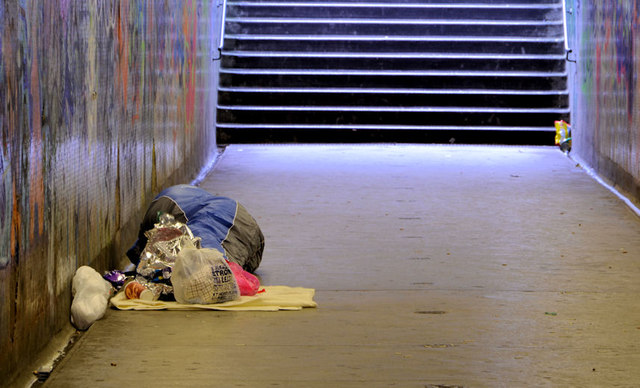The Home Office has used homelessness charity data to deport rough sleepers.

Following similar steps by Islington and Haringey last week, Southwark was the latest London council this week to state that it won’t be complying with new Home Office rules that would see non-UK citizens being deported if found to be sleeping rough. And Manchester yesterday joined in the ‘resistance.’
“To fully prevent the need to rough sleep we need to bring an end to the hostile environment. It requires a cross departmental review of the No Recourse regime that goes beyond knee-jerk policy decisions driven by the need to reduce contingency accommodation,” said the Greater Manchester Combined Authority (GMCA) in a statement.
“We won’t collaborate with the Government’s change to immigration rules for rough sleepers. We believe it is unfair, discriminatory and morally wrong to deport someone simply for falling on hard times and losing their home,” Southwark had tweeted on Monday.
The announcement by Southwark mirrored that of Islington last Friday. The new rules became effective on 1 December, on which date Haringey Council announced its refusal to comply, adding: “We oppose this, believe it is discriminatory, and will do all in our power to protect the most vulnerable.”
The Greater London Authority (GLA) has also said that it will not cooperate with the new rule and has prohibited organisations that use its shared multi-agency database on rough sleepers – called the Combined Homelessness Information Network (Chain)— from communicating it with the Home Office.
The move would appear to be an attempt to avoid a repetition of a notorious revelation three years ago that, unbeknown to charities and outreach workers, the Home Office had used their inputted data to deport foreign rough sleepers.
Meanwhile on Wednesday, Greater Manchester added: “Working with people who have been victimised, trafficked, moved from one end of the country to another as part of an asylum system that has often failed them means building trust can be hard. This is why we will not be complicit in Home Office policies which seek to deport people because they have found themselves destitute and street homeless.”
The decisions reflects accumulating concern shared by MPs, charities, campaigners and lawyers, 150 of whom have signed a letter urging the Home Office to scrap the rule, seeing it as harmful to vulnerable groups: those made unemployed during the coronavirus pandemic or escaping domestic or gang violence, as well as at risk of exploitation.
The number of rough sleepers has increased since the end of the government’s ‘Everyone In’ scheme during the first lockdown. Increases have included many who have had the right to stay but are under the ‘no recourse to public funds’ policy, which puts them at risk of homelessness and destitution if becoming unemployed.
Anti-slavery groups such as Focus on Labour Exploitation (FLEX) and the Anti-Trafficking Monitoring Group (ATMG) point out that fear of deportation is likely exacerbate pressures on people in this situation, and leave many even more vulnerable to trafficking, going against efforts to end modern slavery.
The organisation the Public Interest Law Centre – acting on behalf of Refugee and Migrant Forum of Essex and London (RAMFEL) – is also crowdfunding to prepare to challenge the government legally over the new rule.
On a slightly different issue, Tottenham MP David Lammy summed up his concerns over an announcement this week of a review of the Human Rights Act, the timing of which he described as ‘bonkers’ in the light of the pandemic.
Reports in the Daily Telegraph suggest the review is aimed at finding ways to remove what the government sees as ‘legal obstacles’ preventing or delaying deportation on human rights grounds.
Written by Raoul Walawalker, feature writer at ImmiNews, part of an organisation of UK and Ireland immigration lawyers
To reach hundreds of thousands of new readers we need to grow our donor base substantially.
That's why in 2024, we are seeking to generate 150 additional regular donors to support Left Foot Forward's work.
We still need another 117 people to donate to hit the target. You can help. Donate today.



